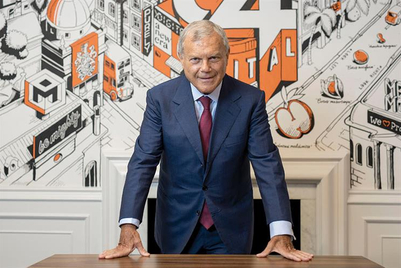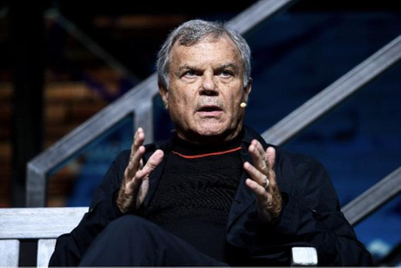
When you arrive at Karmarama HQ, our neon sign promises "good karma this way", it draws you through our disco light tunnel and into our Town Hall.
It certainly adds a ‘wow’ factor but there’s far more to it than bells and whistles. It’s an expression ingrained into our culture and a symbol of our commitment to our values.
Our philosophy is Good Works, and it’s based on good karma. We believe what goes around comes around and if we do the right thing for our people, clients and the wider world, good things will happen.
Since being acquired by Accenture Interactive at the end of last year, these values and our culture still shine as bright as ever.
Sir Martin Sorrell recently commented that acquisitions such as ours struck him as being a "bit odd" and that consultancies couldn’t buy culture, but this simply isn’t true.
Accenture, or more specifically Accenture Interactive, now the largest digital agency network in the world, isn’t trying to change our culture or its own.
If anything, we’ve been actively encouraged to recommit to our culture, retain our identity and celebrate our unique office space and Good Works values.
So much importance is placed on us maintaining this, that we have what Accenture Interactive calls a "deal shepherd", whose job it is to "protect our herd".
In turn, Accenture Interactive has its own culture. Luckily we have some fundamental things in common, such as a commitment to our people, which gained both of us a spot on The Sunday Times Best Places to Work this year.
What’s more, Accenture Interactive recognises that you need a diversity of styles to succeed - creative cultures are different to delivery cultures, for example.
One size doesn’t fit all but our cultures are proof that differing styles can live side by side, working together towards a common goal: helping our clients. To say this marriage is an "odd" one is slightly missing the point. In fact, our differences are precisely what make us stronger.
I would argue that the siloed legacy model, practiced by the likes of WPP and Publicis, doesn’t work perfectly for clients.
Ultimately, it risks undermining culture because it breeds overly competitive, non-collaborative practices and agencies where there are too many vested interests at play.
It’s exciting to be part of a different model. We do combine left and right sides of the brain – but doesn’t it make sense to put these two together? Are we not being challenged to be ‘whole brain marketers’ by our clients?
By working closely with our colleagues, we can bring different skills to the table and solve problems collaboratively. Meanwhile, our clients can come to one place and find the full suite of skills they need rather than having to go to a handful of different agencies who don’t communicate with each other.
Our collaboration of cultures doesn’t just benefit our clients, either. The market is changing and consumers are demanding completely connected experiences.
Now more than ever, brands need to integrate a unified point of view throughout their entire business, not just their marketing communications.
By encouraging our various business functions to work together, the science and the art, we can better keep up with the pace of change, find solutions to the problems that consumers care about most and create great experiences.
What has this meant for Karmarama? Well, the neon lights are still on the walls and our working practices haven’t changed. Accenture Interactive has helped us to deliver at a greater scale, we have had valuable introductions to clients all over the world and as a result, are increasingly working at a global level.
We now have better access to the C-suite. There was a time when we spoke mostly to CMOs, whereas now we can be involved with conversations across the board.
We’re increasingly helping CTOs to create consumer facing offerings and feeding into strategies from the start rather than simply responding to briefs later down the line.
We’re not turning our backs on creativity - it’s essential for business success after all – but it needs to be joined up with other solutions in order to work best.
We believe that by combining our expertise with that of Accenture Interactive, we could end up with something far more effective than anything else in the market.
We’re firm believers that the best context for culture is success. It’s invigorating to be part of a culture that is growing rapidly and is prepared to take risks.
So while we’ll continue to invest in talent and commit to our culture and values, we’ll also make the most of our new relationships – working closely with our Accenture Interactive colleagues to solve our clients’ problems. At the end of the day, that’s why we’re all here.
Jon Wilkins is executive chairman of Karmarama and a managing director of Accenture Interactive


.jpg&h=334&w=500&q=100&v=20250320&c=1)


.png&h=334&w=500&q=100&v=20250320&c=1)



.png&h=334&w=500&q=100&v=20250320&c=1)

.png&h=334&w=500&q=100&v=20250320&c=1)







.png&h=268&w=401&q=100&v=20250320&c=1)